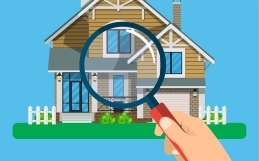 The housing crisis in Guelph (and the region) is a complex, decades-in-the-making problem. No one solution is going to usher us out of this predicament. Key to solving the housing crisis is that all of us – residents and political leaders alike – keep an open mind. We must openly and respectfully debate any reasonable solution that’s proposed. And we have to embrace both short- and long-term solutions.
The housing crisis in Guelph (and the region) is a complex, decades-in-the-making problem. No one solution is going to usher us out of this predicament. Key to solving the housing crisis is that all of us – residents and political leaders alike – keep an open mind. We must openly and respectfully debate any reasonable solution that’s proposed. And we have to embrace both short- and long-term solutions.
So, what’s one example of a long-term approach to housing affordability that we should be talking about in Guelph? Community Land Trusts. Should we as a community be doing more to encourage and support Community Land Trusts?
Caveat: I’ve only recently learned about these organizations. But, I figure if it’s new to me, it’s probably also new to many others. So, here’s what I’ve learned.
What is a Community Land Trust
Community Land Trusts are non-profit organizations that effectively “hold” land on behalf of a community. Their goal is to serve as longterm stewards of the land they hold. Goals of each Trust vary, but typically at the heart of things is a desire to create and sustain affordable housing. Some Trusts seem to have been started proactively; others, in direct response to gentrification.
In its broadest sense, the shared social purpose of these trusts is to promote Equity, Diversity, and Inclusion (EDI) within a community. Community Land Trusts may be new to some of us, but they aren’t new. In fact, they emerged in the United States during the 1960s, specifically as a way for Black farmers to acquire land.
So, first things first. The Trust is established and land is procured. In the ideal scenario for the Trust, that land is donated to the organization. That up-front savings enables the Trust to frankly do more. However, Trusts also purchase land.
How Buyers Become Involved
Typically, a Community Land Trust has a selection process. Residents would need to qualify to buy the housing unit, based upon the criteria that the Trust has developed. Trusts typically provide various mortgage resources to assist the Buyers who are purchasing the unit – but not the land. The land upon which the unit resides remains owned by the Trust.
One reason the land remains under the ownership of the Trust is to control how things are structured upon resale. Equity is split when it comes time to sell and, as a result, the property can be (once again) sold at an affordable price.
How Community Land Trusts Are Sustained
In addition to land lease fees paid by those living on the Trust’s properties, these non-profits endure thanks to personal and corporate donations and – in some cases – through government subsidies.
While Community Land Trusts are most typically established to provide long-term affordable housing, they can also be used to create community gardens, establish new parks, and so forth.

How does any of this dovetail into long-term housing affordability? Well, the non-profit acquires land and develops (or sometimes rehabilitates) affordable housing units. Those units would then be sold (or rented, depending upon the structure of the Trust,) to lower or moderate-income earners at a price that is below the market rate. In other words: affordable.
The Buyer owns (or rents) the physical structure on the land and pays the Trust fees related to their lease/usage of the land itself.
Rules and Restrictions
In order for this kind of long-term affordability strategy to work, there are plenty of rules and regulations in place. A Community Land Trust with a goal of improving housing affordability is almost certainly going to have, for example, restrictions related to resale.
For example, the Trust may require that a housing unit can only be sold to someone who meets specific income qualifications. Resale prices themselves may also be subject to rules, such as a sale price that does not exceed a certain percentage of increase over the initial purchase price.
Could Community Land Trusts provide one of the long-term solutions to the housing affordability crisis? I think so. These organizations work to ensure that the land they procure remains permanently affordable – even if surrounding real estate soars in value.
Examples in Ontario
I don’t know of any Community Land Trusts currently operating in Guelph. Not going to lie… I was a little surprised. In certain ways, Guelph has always been such a progressive city. However, there are more than a dozen operating within Ontario and plenty more throughout Canada.
A few within a few hours of Guelph include the Parkdale Neighbourhood Land Trust, the Muskoka Community Land Trust and the Hamilton Community Land Trust. For a full list of Community Land Trusts (and more information on the subject,) visit the Canadian Network Community Land Trust.
The housing crisis in Guelph is a profound, troubling, and very complicated problem. Decades in the making and with so many moving parts… no one solution is going to solve this thing.
I’d love to see us come up with viable solutions – but that will force us to be creative and open-minded. We have to be willing to look at any and all ways to solve this, both in the short and in the long term. Are Community Land Trusts a quick fix? Definitely not. But they are worth serious consideration as one of a number of long-term solutions to this crisis.
For further reading, here’s a great article published by TVOToday on Community Land Trusts.







